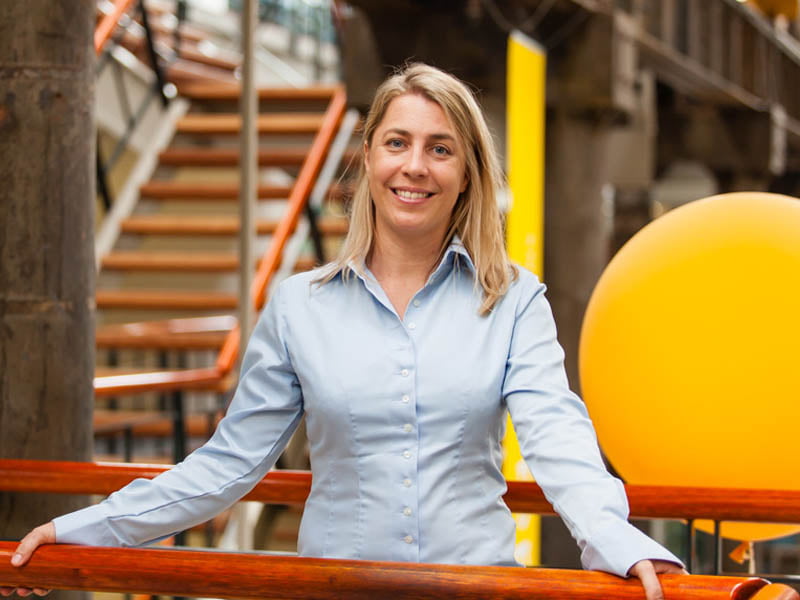Could MedTech startups be the next big thing on the Australian venture capital landscape?
Petra Andrén, CEO of Sydney technology incubator Cicada Innovations thinks so, and her outfit’s Medical Device Commercialisation Training Program (MDCTP), has in eighteen months already helped nine fresh MedTechs raise $15 million.
Ms Andrén is on the hunt for more.

When Australians think MedTech, hearing aid device company Cochlear and sleep disorder device outfit ResMed generally come to mind.
But the rise of Cochlear and ResMed was a long time ago – remember Cochlear was founded in 1981 and ResMed in 1989.
Ms Andrén sees a new crop of MedTechs coming on song.
“Cicada Innovations is owned by four universities (University of Technology Sydney, University of Sydney, University of New South Wales and Australian National University) so I can see the research output. A big part of that research is in MedTech.”
While Australia’s basic MedTech research is plentiful and promising if it never gets into the real world it has done nothing.
“It’s there but obviously we need to commercialise it,” says Ms Andrén.
Therein lies the rub. Australia’s research community has come in for criticism of late for being more interested in looking good in peer reviews and being published in the right academic tomes.
“We have a program that works,” says Ms Andrén.
This year Cicada Innovation’s MDCTP program has graduated Trimph, a company that developed a dental glue that will be the world’s first bone graft substitute that can be applied in liquid form.
It also promises to cut patient recovery time in half does not need special preparation or additional surgical expertise.
Another program graduate called Project Geldom came up with a hydrogel condom that enhances rather than dulls sensation for users and hopes to help cut the spread of HIV and sexually transmitted diseases. The project also scored funding from the Bill & Melinda Gates Foundation.
Other projects include a potential cure for prostate cancer, a project that increases the chances of picking healthy eggs for IVF and a neuro-prosthetic exoskeleton that would allow paraplegics to walk unassisted.
“MDCTP is a vehicle that brings publicly funded intellectual property out of research institutes.”
“We have an advantageous position is we have four research institutions and we have complete insight into those institutions.
“We have their support to commercialise. The secret sauce is we have a program that allows researchers to experience the other world,” says Ms Andrén.
Part of experiencing the real world is being dumped into a shark tank.
Graduates of the 2017 MDCTP program can apply for a closed-door investor pitch event, populated by MedTech VC’s and angel investors including Brandon Capital, OneVentures, and BioScience Managers.
“It’s no surprise we’ve begun to receive interest from some heavy hitters in the Venture Capital and Angel investing scene, as there is simply no other program in Australia generating these types of results,” says Ms Andrén.
Last week the MDCTP Showcase held, had 18 MedTechs doing a show and tell at Cicada Innovations offices in Sydney’s Eveleigh tech park.
Ms Andrén says the MDCTP program avoids researcher recalcitrance when it comes to the business world by being careful with who gets in.
“We select projects with a good chance of commercialisation alongside people who have a real interest with actually bringing things to market.”
“We are not forcing researchers to become entrepreneurs. We are picking researchers that we know have an entrepreneurial bent.
“Having said that not all the projects we run through this program end up being startup businesses. It’s a validation process.”
The three month MDCTP program and the possible ongoing support from Cicada Innovations is tailored to the MedTech world.
“It’s three months and then if something looks good it can continue to get support for five years. It’s not an accelerator like you would run an accelerator for app development.”
MedTechs are usually developing physical devices and software and the potential medical use often means rigorous testing by regulatory agencies both here and overseas.
Ms Andrén says it typically takes a year or two before a MedTech project is at the point it can raise capital.
“Typically they go through this three month program and they get to a proof of concept stage. Then it takes one to two years before we can get something that is actually marketable.”
Ms Andrén believes Australia is at a point where it can make a mark on the global MedTech scene but needs to move quickly. She believes Australia can be competitive but we are not there yet.
“In MedTech we do have Cochlear and ResMed and we do have strong basic research, great research outputs and a health care system that is open to innovation. I think we can be globally competitive – we aren’t there yet but we can be.”
Do you know more? Contact James Riley via Email.

